Video
Sign up for our newsletter
We summarize the week's scientific breakthroughs every Thursday.
-
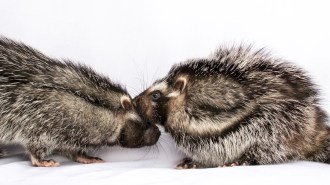 Plants
PlantsRats with poisonous hairdos live surprisingly sociable private lives
Deadly, swaggering rodents purr and snuggle when they’re with mates and young.
By Susan Milius -
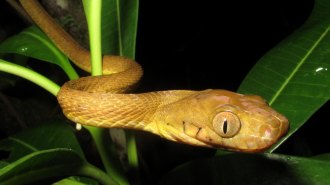 Animals
AnimalsBrown tree snakes use their tails as lassos to climb wide trees
A never-before-seen climbing technique could inspire the creation of new serpentine robots to navigate difficult terrains.
-
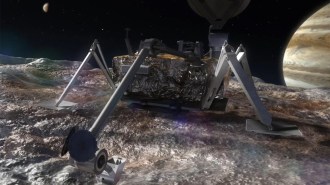 Space
SpaceHow future spacecraft might handle tricky landings on Venus or Europa
Scientists are getting inventive with ways to touch down on these worlds, where landers will face obstacles not seen elsewhere in the solar system.
-
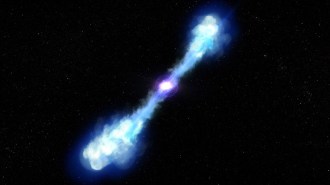 Space
SpaceAstronomers spotted colliding neutron stars that may have formed a magnetar
Astronomers may have witnessed the formation of a kind of rapidly spinning, extremely magnetized stellar corpse for the first time.
-
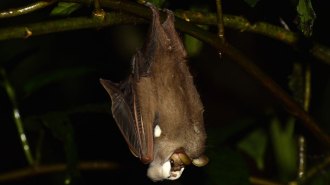 Animals
AnimalsA face mask may turn up a male wrinkle-faced bat’s sex appeal
The first-ever scientific observations of a wrinkle-faced bat’s courtship shows that, when flirting, the males raise their white furry face coverings.
By Susan Milius -
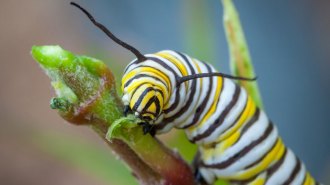 Life
LifeMonarch caterpillars head-butt each other to fight for scarce food
Video experiments show that monarch caterpillars turn aggressive when there’s not enough milkweed to go around.
-
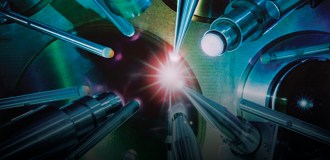 Physics
PhysicsGiant lasers help re-create supernovas’ explosive, mysterious physics
For the first time, scientists have re-created a type of shock wave that occurs in supernovas.
-
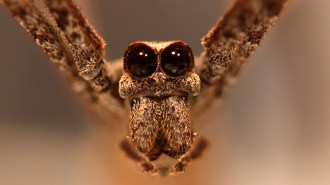 Life
LifeOgre-faced spiders catch insects out of the air using sound instead of sight
A new study finds that ogre-faced spiders can hear a surprisingly wide range of sounds.
-
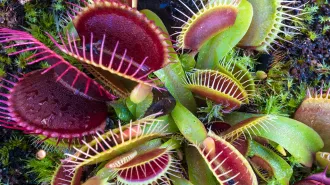 Plants
PlantsHow Venus flytraps store short-term ‘memories’ of prey
Glowing Venus flytraps reveal how calcium buildup in the cells of leaves acts as a short-term “memory” that helps the plants identify prey.
-
 Space
SpaceHow do you clean up clingy space dust? Zap it with an electron beam
An electron beam is the newest addition to a suite of technologies for cleaning sticky and damaging lunar dust off surfaces.
By Jack J. Lee -
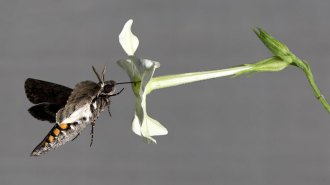 Environment
EnvironmentThis moth may outsmart smog by learning to like pollution-altered aromas
In the lab, scientists taught tobacco hawkmoths that a scent changed by ozone is from a favorite flower.
By Carmen Drahl -
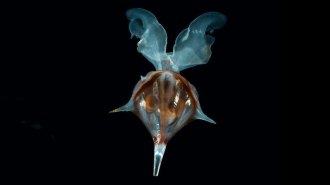 Animals
AnimalsSea butterflies’ shells determine how the snails swim
New aquarium videos show that sea butterflies of various shapes and sizes flutter through water differently.